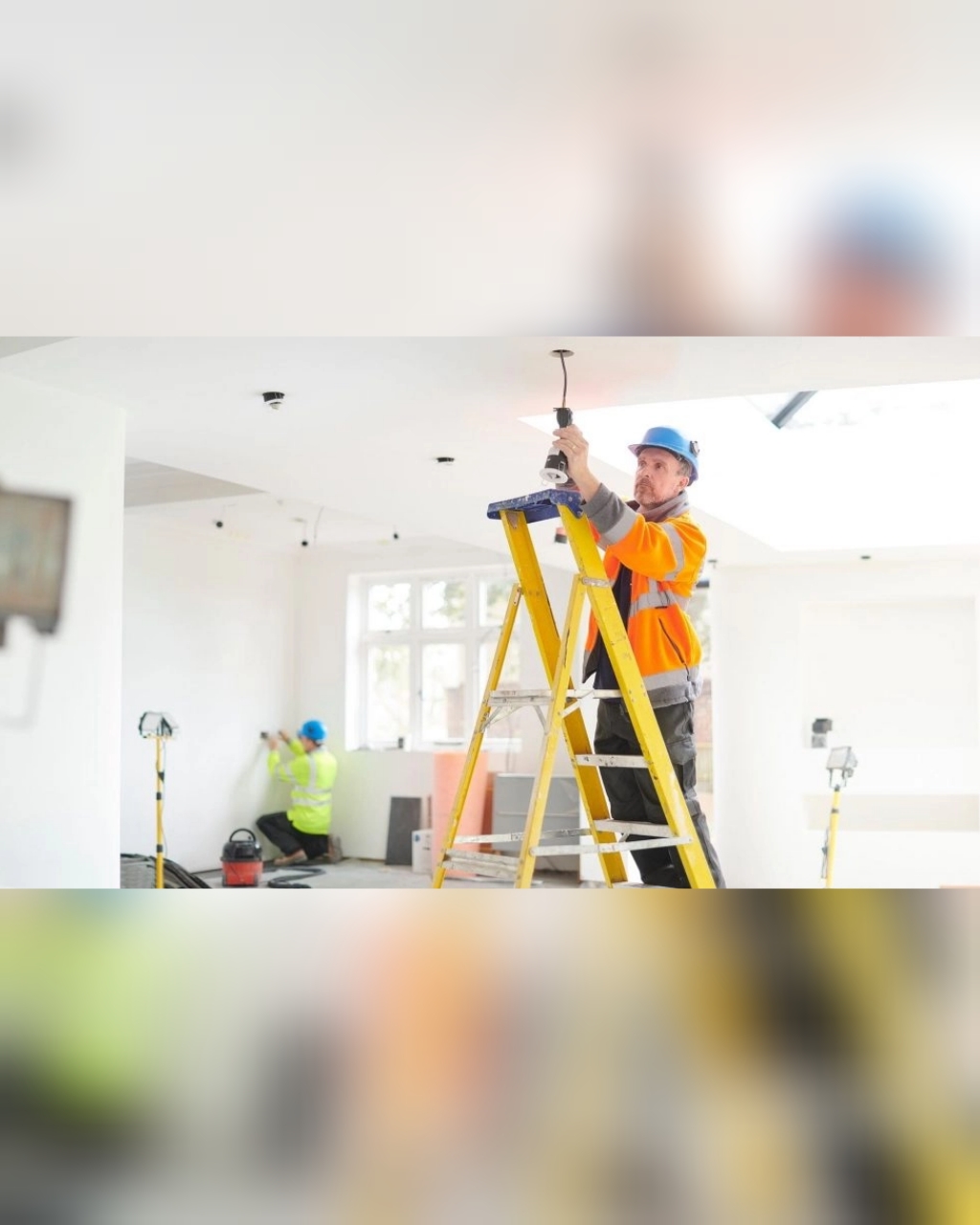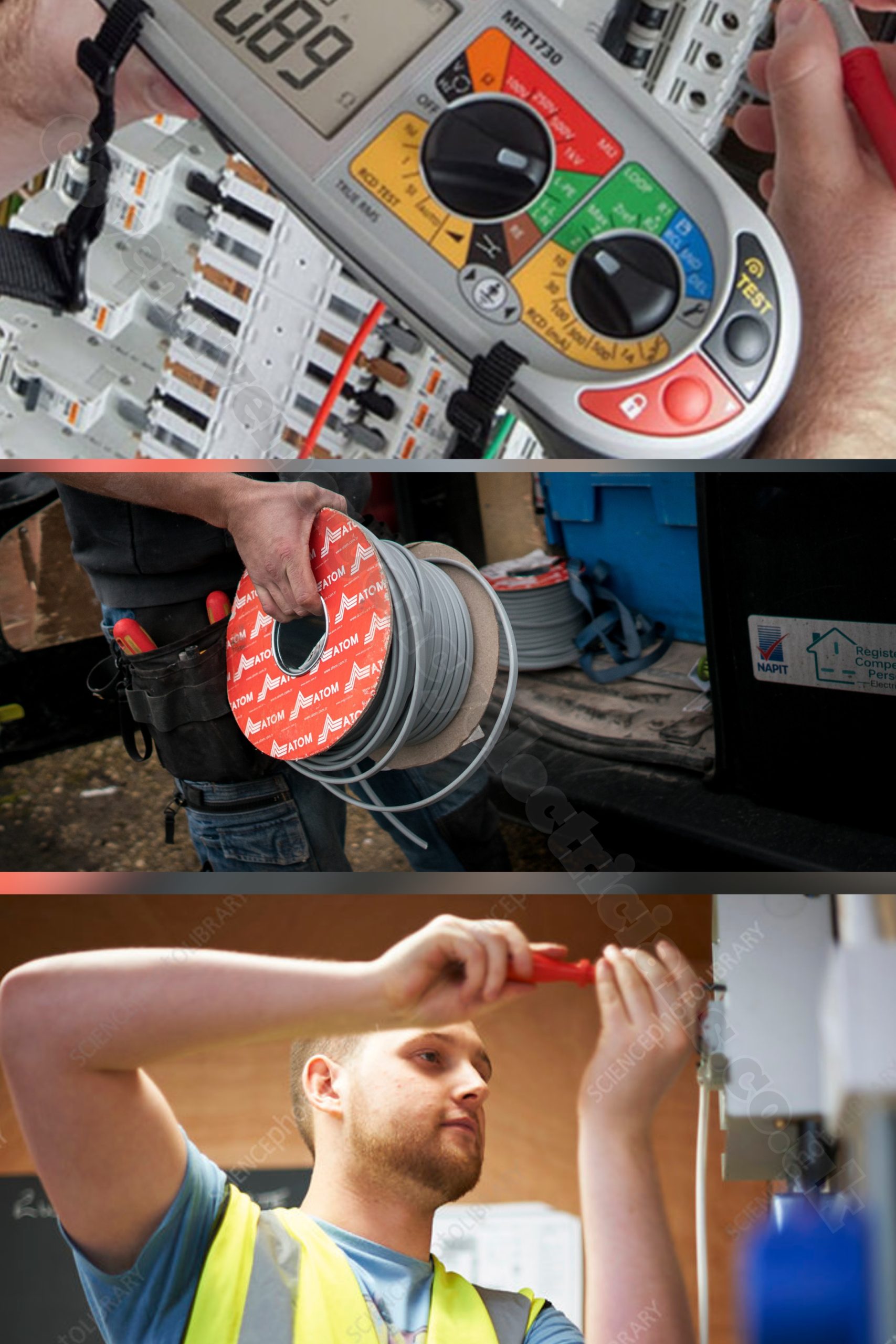If you’re looking for an electrician near you to rewire your house, you’ll want to find a reliable, experienced professional who offers competitive prices. In this guide, we’ll cover everything you need to know about rewiring a house, including the cost, how to find a qualified electrician near you, and what to expect during the process. Whether you need an electrical installation certificate or a part P certificate, our guide has you covered. Find a local electrician in your area who can provide electrical services for domestic or commercial properties.
Is it Time to Rewire Your House?
There are a few signs that your house may need rewiring. Here are some of the most common indicators:
Age of wiring: If your home was built more than 30 years ago and has never had a rewire, it may be time for an update.
Circuit breaker tripping: If your circuit breaker is constantly tripping or fuses are blowing, this could be a sign of faulty wiring.
Burn marks or discoloration: If you see burn marks or discoloration around outlets or switches, this could indicate faulty wiring.
Buzzing or crackling sounds: If you hear buzzing or crackling sounds when you use electrical appliances, this could indicate faulty wiring.
Overuse of extension cords: If you rely on extension cords to power multiple appliances, it could be a sign that you need more outlets or a rewiring.

Outdated electrical system: If your home’s electrical system is outdated or not up to code, it may be time for a rewiring.
If you notice any of these signs in your home, it’s important to have a professional electrician evaluate your electrical system to determine if a rewiring is necessary.
2023 UK House Rewiring Prices: How Much Does It Cost to Rewire a House?
The cost to rewire a house in the UK in 2023 will vary depending on a number of factors such as the size of the property, the type of wiring needed, and the complexity of the job. On average, you can expect to pay anywhere from £2,500 to £5,000 for a standard 3-bedroom house, but the cost could be higher for larger properties or those with more complex electrical systems. It’s important to get an accurate quote from a qualified electrician before starting the rewiring process to avoid any surprises later on.
Does your property need to be rewired?
What Does a Full House Rewire Entail?
A full house rewire is a complex and extensive process that involves replacing all of the electrical wiring and components in a property. Here is a general overview of what’s involved in a full house rewire:
Assessment: The first step is to have a qualified electrician assess your current electrical system to determine the extent of the rewiring needed.
Planning: Based on the assessment, the electrician will create a plan for the rewiring project that includes the scope of work, materials needed, and estimated timeline.
Removal: The old wiring is removed from the property, including any fixtures, switches, and outlets.
Installation: New wiring, outlets, and fixtures are installed throughout the property according to the plan.

Testing: Once the installation is complete, the electrician will test the new system to ensure it is functioning properly and safely.
Certification: A certification of electrical installation is issued to demonstrate that the work was done in compliance with building codes and regulations.
A full house rewire is a complex and time-consuming process that requires the expertise of a qualified electrician. It’s important to choose an electrician with experience in rewiring homes and who is certified to perform this type of work.
Does your property need to be rewired?
Is It Safe to Rewire a House Yourself in the UK?
It is not recommended to attempt to rewire a house yourself in the UK. Electrical rewiring is a complex and dangerous task that requires the skills and expertise of a qualified electrician. Attempting to do the job yourself could lead to serious safety hazards, electrical failures, and even legal issues if building regulations are not followed.
In the UK, electrical work must comply with Part P of the Building Regulations. This means that any electrical work must be carried out by a qualified and registered electrician or must be inspected and approved by a building control officer. Attempting to rewire a house yourself could result in costly mistakes, fines, or even the need to completely redo the work.
To ensure the safety of your property and those living in it, it’s best to hire a qualified and experienced electrician to rewire your house. They have the knowledge, skills, and tools to complete the job safely, efficiently, and to the required standards.

Frequently Asked Question
Factors to Keep in Mind When Rewiring a House:
- Careful Planning: The placement of lights, switches, and sockets should be planned in advance to ensure a successful rewiring job.
- Timings: Rewiring a house is a two-stage process that involves first fixing the wires and then fitting the accessories.
- Future-Proofing: It is important to consider any future electrical needs when rewiring a house to avoid the need for additional work in the future.
- Smart Home Wiring: With the increasing popularity of smart home technology, it may be worth considering installing wiring for these systems during a rewiring job.
- Certification: Once the rewiring job is complete, it is important to obtain the necessary certification from a qualified electrician to ensure that the work complies with building regulations.
The duration of a full house rewire depends on various factors such as the size of the property, complexity of the wiring, and the number of rooms. Typically, a full house rewire can take anywhere from 3 to 10 days, but in some cases, it can take longer. It’s best to consult a qualified electrician who can provide you with an estimate based on your specific requirements.
In some cases, it may be possible to rewire a house without removing the plaster, but it depends on the age of the property, the type of wiring that needs to be replaced, and the condition of the existing plaster. If the wiring is relatively new and in good condition, it may be possible to use the existing wiring routes and thread new wiring through the existing conduits. This method is called “chasing in” or “surface wiring”. However, if the existing wiring is old or in poor condition, it may be necessary to remove the plaster to replace the wiring, which can be a more time-consuming and expensive process. Ultimately, it’s best to consult a qualified electrician to assess the condition of the existing wiring and determine the best course of action for your specific situation.
After a rewire, it’s common to need a plasterer to repair the walls and ceilings where channels have been chased out to run the new wiring. In some cases, it may be possible to use surface-mounted wiring or conduit to avoid the need for chasing out channels, which would eliminate the need for plastering. However, this is not always feasible or desirable, as it can be more expensive and aesthetically unappealing.
It’s important to note that the extent of the plastering work required will depend on the scope of the rewire and the condition of the existing walls and ceilings. It’s best to consult with your electrician and/or a qualified plasterer to determine the extent of the plastering work required and the associated costs.
While some electricians may offer plastering services after a rewire, it is not typically part of their core services. It is more common for electricians to work in conjunction with a plasterer or building contractor to coordinate the rewiring and the subsequent plastering work.
If you are hiring an electrician to carry out a full rewire, it’s a good idea to ask them about their approach to plastering and whether they work with a plasterer or building contractor. This will help you to plan and budget accordingly for the full scope of the work required.

